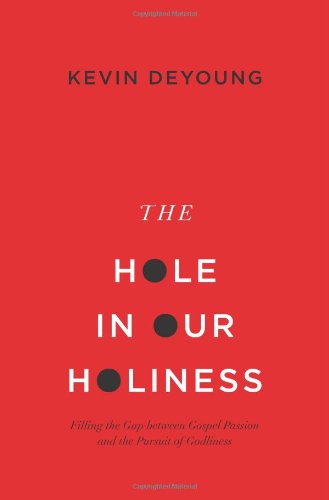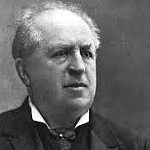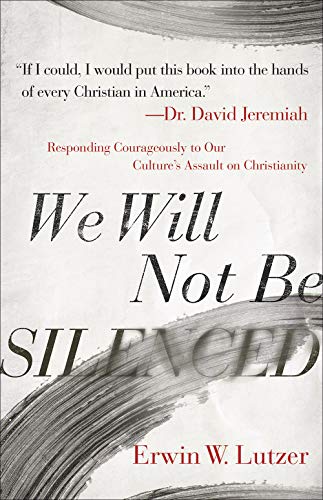Quotes about Conviction
Just because someone is sincere in his conviction does not mean that it is true. It is possible to be sincerely wrong.
Made For His Pleasure, Moody Press, 1996, p. 125. Get this book!
When Holy God draws near in true revival, people come under terrible conviction of sin. The outstanding feature of spiritual awakening has been the profound consciousness of the Presence and holiness of God.
Conviction should actually grow throughout our Christian lives. In fact, one sign of spiritual growth is an increased awareness of our sinfulness.
Copied from The Gospel for Real Life by Jerry Bridges, © 2002, p. 18. Used by permission of NavPress – www.navpress.com. All rights reserved. Get this book!
What about those areas in which Christians differ in their convictions as to God’s will? Paul speaks to this question in Romans 14, where he takes up the problem of eating certain food. He lays down three general principles to guide us. The first is that we should not judge those whose convictions are different from ours (verses 1-4). The second principle is that whatever our convictions are, they must be “to the Lord,” that is, developed out of a sense of obedience to Him (verses 5-8). The third principle is that whatever convictions we have developed as “to the Lord,” we must be true to them (verse 23). If we go against our convictions, we are sinning, even though others may have perfect freedom in that particular thing.
Copied from The Pursuit of Holiness by Jerry Bridges, © 1996, p. 90. Used by permission of NavPress – www.navpress.com. All rights reserved. Get this book!
A conviction is a determinative believe: something you believe so strongly that it affects the way you live.
Copied from The Discipline of Grace by Jerry Bridges, © 1994, p. 162, Used by permission of NavPress – www.navpress.com. All rights reserved.
We need to be careful that we do not add our own man-made rules to the Scriptures. Some convictions that we hold dearly may be derived more from our particular Christian culture than derived from Scripture, and we need to learn to discern the differences. It is okay to have cultural convictions, but we should be careful that we do not elevate them to the same authority as Scripture. So much judgmentalism among Christians today occurs because we do this.
This is the way we develop conviction – by bringing God’s Word to bear on specific situations that arise in our lives and determining God’s will in that situation from the Word.
Copied from The Pursuit of Holiness by Jerry Bridges, © 1996, p. 87. Used by permission of NavPress – www.navpress.com. All rights reserved.
Arrogance doesn’t come from having convictions about the truth; it comes from having the wrong convictions about how to treat people who don’t share it with you. Humility doesn’t come from not having any convictions; it comes from having the right convictions about the importance of gentleness and respect [see 1 Pet. 3:15-16].
Copied from How to Stay Christian in College by J. Budziszewski copyright 2004, p. 82. Used by permission of NavPress (Think Books) – www.navpress.com. All rights reserved. Get this book!
Convictions of personal conscience are those areas where a strict absolute is not laid down for us in the Bible. [Yet] having such personal convictions does not mean you cannot make a biblical argument for your position.
An Outline for Understanding Issues of Conscience and Legalism, Christian Communicators Worldwide, www.CCWtoday.org. Used by Permission.
Biblical guidelines for evaluating the exercise of our personal convictions:
1. Does it Glorify God? Isaiah 43:7, 1 Corinthians 10:31, John 15:8.
2. Can it be done in the name of Jesus? Colossians 3:17.
3. Does it cause a weaker brother to stumble? Romans 14:15, 21, Matthew 18:6-9, 1 Corinthians 8:9-13.
4. Is it profitable for you? I Corinthians 6:12.
5. Does it involve wrong company which may lead you astray? 1 Corinthians 15:33, Psalm 1:1.
6. Does it have the appearance of evil or make provision for the flesh? 1 Thessalonians 5:21-22, Romans 13:14.
7. Can it be done for the Lord? Colossians 3:23.
8. Do you have any doubts about it? Romans 14:23.
9. Would your parents understand this activity to be honoring to them? (How do you find out? ASK THEM!) Ephesians 6:2-3.
10. Is it something you would like to reap in the life of your children? Galatians 6:7-8.
11. Are you willing to face it in judgment? 2 Corinthians 5:10.
An Outline for Understanding Issues of Conscience and Legalism, Christian Communicators Worldwide, www.CCWtoday.org. Used by Permission.
If you have never been hurt by a word from God, it is probable that you have never heard God speak.
Remorse for sin does have a place in the Christian life, but we should be very sure what function it serves. Guilt should drive us to the cross, but grace must lead us from it. Guilt makes us seek Christ, but gratitude should make us serve Him. Guilt should lead to confession, but without a response of love as the motive of renewed obedience, true repentance never matures.
The Power of Mercy by Bryan Chapell taken from Holiness by Grace by Bryan Chapell, copyright 2001, Crossway Books, a division of Good News Publishers, Wheaton Illinois 60187, www.crosswaybooks.org. Page 192.
There is a proper role for what theologians call subjective guilt (how I feel). This feeling of remorse for wrong is a result of the Holy Spirit revealing our sin to our consciences (this we call “conviction”). However, amid our feelings of remorse we must remember that our objective guilt (the judgment that God imposes for our sin) has been entirely satisfied by Christ (Eph. 2:14-16; Col. 1:19-20).
The Power of Mercy by Bryan Chapell taken from Holiness by Grace by Bryan Chapell, copyright 2001, Crossway Books, a division of Good News Publishers, Wheaton Illinois 60187, www.crosswaybooks.org. Page 189.
Again and again, God’s Word reveals that He is not as concerned about the depth or extent of the sin we commit as He is about our attitude and response when we are confronted with our sin.
It’s the testimony of almost all saints that as they get closer to God they see more of their ungodliness. It’s normal to feel less holy as you become more holy. Being more aware of sin in your life is usually a sign of the Spirit’s sanctifying work, not of His withdrawal.
That All May See Progress by Kevin DeYoung taken from The Hole in Our Holiness by Kevin DeYoung, copyright 2012, Crossway Books, a division of Good News Publishers, Wheaton Illinois 60187, www.crosswaybooks.org, p. 139.
The spiritual life is lived between two polarities: our sin and God’s grace. The discovery of the former brings us to seek the latter; the work of the latter illuminates the depths of the former and causes us to seek yet more grace… The heart-conviction of sin is the way grace prepares the heart for more grace.
There can be few more alarming sights than the sight of what we would be were we left to ourselves, of what we are by nature in and of ourselves. It is a sight which few of us are able to bear for any length of time. That is why such experiences are usually brief, pointed but not prolonged. God shows us enough to make us see our need, to break down any illusions we may have had about ourselves. Like a skilled surgeon His knife work is fast, accurate and clean.
No one enjoys being cross-examined, or accused of having something wrong in their lives. But as we grow as Christians we come to the painful recognition that we have an almost unlimited capacity for self-deception. We slowly learn that we need to be stopped in our tracks by God. He uses Scripture to do this… We cannot reach our destination if we are travelling in the wrong direction.
[Jonathan Edwards] seemed to manage very well by what he said rather than how he said it. There was always the memory of Enfield. In that village, in his calm way he had preached a sermon on “Sinners in the Hands of an Angry God.” The content of the message had so grabbed hold of his congregation that people held on in terror to the pews lest they slip into the great abyss of hell which they saw yawning at their feet.
Convictions based just on what our parents believe may work for a time; convictions based on personal experiences may help with some situations; convictions based on personal opinions may at times guide us in decisions; and even convictions based on the values of the world may in a rare situation also honor God; but by far the best, the strongest, and the surest conviction that will guide us in every situation, decision, and temptation is a conviction formed by sound and thorough biblical study and teaching.
Feelings of sorrow alone aren’t necessarily conviction. We can be sorrowful for many reasons, including selfish ones. We can be sorry for the bad consequences of our sin, sorry we were caught, sorry we lost someone’s respect. The kind of worldly grief can’t begin to address the true offense of sin, and it can’t begin to change us [see 2 Cor. 7:8-9]. Only godly grief brings repentance. And only repentance testifies to the surgical effect of God’s truth applied to our sinful hearts.
[It is] God’s intent to bring conviction, not condemnation.
Counseling the Hard Cases, Edited by Stuart Scott and Health Lambert, B&H Publishing, 2012, p. 188, Used by Permission.
There is a vast difference between self-conviction and Holy Spirit-conviction. When God convicts, He gets specific with us about our sin… He uses specific Scriptures. And His kindness toward us leads to a hopeful conclusion of repentance and dependence. Self-conviction, and the conviction of the enemy, on the other hand, is wide-ranging, condemning, and defeatist. It leads back to self: “Try harder and do better”… [It will lead is] right back where [we] started – awash in guilt and condemnation.
Two Words to Stop Self-Condemnation, March 4, 2015, Used by Permission of DesiringGod.org.
A ministry which is weak and flabby on the subject of sin is a useless ministry. A preaching ministry that does not result in conviction of sin is useless. If it does not wound, how can it heal? The good news is only for sinners.
In dealing with our old self-life, there will come a day when the Master must take us in hand and apply the keen cutting edge of His Word to our lives. It may be an unpleasant business for a time. No doubt we’ll struggle and kick about it. We may get a few cuts and wounds. But what a relief when it is all over. Oh, the pleasure of being set free from ourselves! What restoration!
A Shepherd Looks at Psalm 23, Permission by Zondervan, www.zondervan.com. 1970, p. 58.
Preachers must preach for conviction and change. No one ought ever to leave a sermon without having a very real sense that there is something in their lives they need to do something about.
When principles that run against your deepest convictions begin to win the day, then battle is your calling, and peace has become sin; you must, at the price of dearest peace, lay your convictions bare before friend and enemy, with all the fire of your faith.
It is when we notice the dirt that God is most present in us.
There is something essentially wrong with a man who calls himself a Christian and who can listen to a truly evangelistic sermon without coming under conviction again, without feeling something of his own unworthiness, and rejoicing when he hears the Gospel remedy being presented.
Preachers and Preaching, Zondervan, 1971, p. 150. Get this book!
You must be made miserable before you can know true Christian joy. Indeed the real trouble with the miserable Christian is that he has never been truly made miserable because of conviction of sin. He has by-passed the essential preliminary to joy, he has been assuming something that he has no right to assume.
Spiritual Depression – Its Causes and its Cures, 1965, p. 28, Used by Permission from Elizabeth Catherwood (daughter). Get this book!
There are other people who are prepared to argue and discuss and even change their opinion, but they do not do anything about it. The evangelical, however, is a man who acts on his convictions. There would never have been Protestantism if this were not true.
It’s not really our sins that make us weep; they have a part in it… It is when we see the kind of Savior we have sinned against that really makes us weep.
The Danger of Spiritual Overconfidence. The sermon originally appeared at: www.gty.org/library/sermons-library/42-275/the-danger-of-spiritual-overconfidence at www.gty.org. © 1969-2008. Grace to You. All rights reserved. Used by Permission.
This pursuit by the power of the sanctifying Spirit produces a decreasing frequency of sin and increasing love for holiness, which makes less sin feel like more. The truly mature and godly have the most sensitive awareness of their sins, and are the humblest before God because of it.
When insufficiently convicted of our sin, we do not really confess and ask forgiveness. Instead we explain, excuse, and appeal for understanding.
Pastoral Leadership for Manhood and Womanhood, ed. Wayne Grudem and Dennis Rainey, Crossway, 2002, p. 198.
Until the sinner is convinced of sin – he can never be converted from sin. Christ’s coming was as a Savior to die for sinners. The Spirit’s coming is to convince us of sin – that we may close with Christ as our Savior. So long as sin is unseen – Christ will be unsought. “Those who are whole need not the physician – but those who are sick.”
Convictions are the product of both head and heart. There is an emotional component to belief, as well as an intellectual component. The Christian tradition speaks powerfully of the commitment of belief as a matter of the heart. Christian convictions take possession of our heads and hearts through Christian teaching and the preaching of God’s Word. As a matter of fact, most of us gain our most fundamental convictions in just this way – we hear them, see them to be truly revealed in the Bible, and then believe them.
When a leader walks into the room, a passion for truth had better enter with him. Authentic leadership does not emerge out of a vacuum. The leadership that matters most is convictional—deeply convictional. This quality of leadership springs from those foundational beliefs that shape who we are and establish our beliefs about everything else. Convictions are not merely beliefs we hold; they are those beliefs that hold us in their grip. We would not know who we are but for these bedrock beliefs, and without them we would not know how to lead.
Convictions are not merely beliefs we hold; they are those beliefs that hold us in their grip. We would not know who we are but for these bedrock beliefs, and without them we would not know how to lead.
Contrast the priority of convictional intelligence with the models of leadership that are often found and even admired in some Christian circles. Charisma is a great gift, but it cannot substitute for conviction. The same is true of personality skills, gifts of communication, media presence, and organizational ability. None of these things can qualify a Christian leader when conviction is absent or weak.
Convictions are the product of both head and heart. There is an emotional component to belief, as well as an intellectual component. The Christian tradition speaks powerfully of the commitment of belief as a matter of the heart. Christian convictions take possession of our heads and hearts through Christian teaching and the preaching of God’s Word. As a matter of fact, most of us gain our most fundamental convictions in just this way – we hear them, see them to be truly revealed in the Bible, and then believe them.
The Conviction to Lead, Bethany House Publishers, 2012, p. 100, Used by Permission. Get this book!
The biblical writers…suggest that all persons will inevitably “mourn” for their spiritual state. They can wait to mourn until it is too late, when God has brought His judgment on the earth. Or they can mourn now, turning sorrowfully from their sin so that they will have no occasion to mourn when the Lord returns.
Faith is knowledge passing into conviction, and it is conviction passing into confidence.
How can I tell the difference between the convicting ministry of the Holy Spirit and the accusing attacks of Satan? Some thoughts: 1. The Holy Spirit puts His finger on a specific sin I have committed, something concrete I can own and confess, but the accusations of Satan are vague and simply demoralizing. 2. The Holy Spirit shows me Christ, the mighty Friend of sinners, but the devil wants me spiraling down into negative self-focus. 3. The Holy Spirit leads me to a threshold of new life, but the devil wants to paralyze me where I am. 4. The Holy Spirit brings peace of heart along with a new hatred of sin, so that I bow before Jesus in reconsecration, but the devil offers peace of mind with smug relief, so that I fold my arms and say, “There, that’s over with.” 5. The Holy Spirit helps me to be so open to God that I allow Him to control the conversation, but the devil tempts me to take off the table certain questions I just don’t want God to talk to me about. We are thankful for our dear Friend, the Holy Spirit.
God’s Law convicts of sin only as I appreciate whose Law it is I have broken (Derek Prime and Alistair Begg).
On Being a Pastor, Moody Press, 2004, p. 139. Get this book!
Having convictions can be defined as being so thoroughly convinced that Christ and His Word are both objectively true and relationally meaningful that you act on your beliefs regardless of the consequences (Josh McDowll and Bob Hostelter).
Taken from Beyond Belief to Convictions, © 2002, p. 22. Used by permission of Tyndale House Publishers, Inc. All rights reserved.
Men never do evil so completely and cheerfully as when they do it from religious conviction.
Godly sorrow springs from a view of a suffering Savior, and manifests itself by hatred of self, abhorrence of sin, groaning over our backslidings, grief of soul for being so often entangled by our lusts and passions, and is accompanied by softness, meltings of heart, flowings of love to the Redeemer, indignation against ourselves, and earnest desires never to sin more.
The awareness of sin, a deep awareness of disobedience, and painful confession of sin used to be our shadow. Christians hated sin. They feared it, they fled from it, they grieved over it. Some of our [forefathers] agonized over their sins. A man who lost his temper might wonder if he could still go to holy communion. A woman who for years envied her more attractive and intelligent sister might wonder if this sin threatened her very salvation… That shadow has dimmed. Nowadays the accusation, “You have sinned,” is often said with a grin and with a tone that signals an inside joke. At one time this accusation still had the power to jolt people.
Men will never come to Jesus, and stay with Jesus, and live for Jesus, unless they really know why they are to come, and what is their need. Those whom the Spirit draws to Jesus are those whom the Spirit has convinced of sin. Without thorough conviction of sin, men may seem to come to Jesus and follow Him for a season, but they will soon fall away and return to the world.
Similar to the instructions we pass along to our children for their physical safety, our Father in heaven gives us His instruction for our spiritual safety. Yet like ignorant and carefree children, we at times ignore His teaching. We at times want to do things according to our own estimation apart from the Scriptures. And when we do this, God in His mercy allows us to feel pain. Guilt is a gift from God that makes us sensitive to sin. Another word for this that we commonly use is conviction.
I think of Peter after He denied the Lord. The Bible says, “He went out and wept bitterly” (Lk. 22:62). Psalm 38:18, “For I confess my iniquity; I am full of anxiety because of my sin.” Jeremiah 31:18, “I have surely heard Ephraim grieving, ‘You have chastised me, and I was chastised, like an untrained calf; bring me back that I may be restored, for You are the LORD my God.’” In the Beatitudes our Lord said, “Blessed are those who mourn, for they shall be comforted” (Mt. 5:4). In 2 Corinthians 7, Paul spoke of a “godly sorrow.” In the depths of your relationship with God have you ever experienced this? When we sin against God we should experience our most intense grief. In verse 3 of Psalm 6, David speaks of His soul being “greatly dismayed.”
When have you most recently felt the crushing pain of a burdened heart, darkened soul or guilty conscience solely because of your sin against God? Does sin hurt you as much as it hurts God? Does it make you sick, grieved or disappointed? Does it weigh on you prompting repentance and calling to God for restoration? Do you ever feel that your sin has divided you from a rich relationship with God and the feeling is one of emptiness, despair and regret?
So, God wants you to have a convictions. God wants you to love Him with all your mind and seek to live for His glory with a clear conscience in all the gray areas of the Christian life that we are dealing with these days. But remember, our convictions must not contradict Scripture and should be in line with general biblical principles. They should be wise and not unnecessarily ruin our relationship with unbelievers. And they should obey God-given authority and not cause another believer to sin.
He that reads his Bible to find fault with it will soon discover that the Bible finds fault with him.
I believe the holier a man becomes, the more he mourns over the unholiness which remains in him.
A sermon often does a man most good when it makes him most angry. Those people who walk down the aisles and say, “I will never hear that man again,” very often have an arrow rankling in their breast.
When I regarded God as a tyrant, I thought my sin a trifle, but when I knew Him to be my Father, then I mourned that I could ever have kicked against Him.
Too many think lightly of sin, and therefore think lightly of the Savior. He who has stood before his God, convicted and condemned, with the rope about his neck, is the man to weep for joy when he is pardoned, to hate the evil which has been forgiven him, and to live to the honor of the Redeemer by whose blood he has been cleansed.
How do we distinguish between satanic accusation and divine conviction? Among other things, the former comes in the shape of condemnation that breeds feelings of hopelessness. We are told that our sin has put us beyond the hope of grace and the power of forgiveness. Satan’s accusations are devoid of any reference to the sufficiency of the cross. Divine conviction for sin, on the other hand, comes with a reminder of the sufficiency and finality of Christ’s shed blood, together with a promise of hope and the joy of forgiveness.
Copied from: Pleasures Evermore: The Life-Changing Power of Knowing God by Sam Storms, © 2000, p. 263. Used by permission of NavPress – www.navpress.org. All rights reserved. Get this book!
One will never know if what motivates us is moral conviction or moral convenience until we are forced to suffer loss for standing our ground or keeping our word.
Copied from: Pleasures Evermore: The Life-Changing Power of Knowing God by Sam Storms, © 2000, p. 241. Used by permission of NavPress – www.navpress.org. All rights reserved. Get this book!
Remorse, regret, sorrow, and the pain provoked by sin will only increase and intensify the longer we are Christians. Maturity in the faith does not lead to less sorrow over sin, but more. The pain does not diminish; it deepens.
Godly sorrow and worldly sorrow. The first one leads to life, but the latter shoves us into a spiritual grave. Worldly sorrow only bemoans getting caught or weeps for what was lost. It never grieves for the wrong committed. Godly sorrow produces different results. When we experience godly sorrow, we are deeply grieved for the wrong we committed. We desire to ask forgiveness, to repair the damage, to make reparation for the harm done; not merely to protect ourselves from pain or regain what we didn’t want to give up. In a word, we repent.
Getting Past Guilt: Overcoming Barriers to Feeling Forgiven. See more at: http://www.insight.org/resources/articles/encouragement-healing/getting-past-guilt.html?referrer=https://www.google.com/#sthash.Pk5C35Qn.dpuf.
Too often, what we call convictions are actually preferences. Real convictions are based on revealed truth (that is, Scripture). Preferences are based on personal desire. Convictions are constant; preferences change with desire. Convictions demand faith; preferences rely on the emotions of the moment.
Age of Opportunity, P&R Publishing, 1997, p. 131-132, Used by Permission. Get this book!
Six characteristics of biblical conviction:
1. A biblical conviction is always based on a study of, submission to and application of Scripture.
2. A biblical conviction is always predetermined
3. A biblical conviction will not change with the circumstances.
4. Biblical convictions are inflexible.
5. True biblical conviction is bold.
6. True biblical conviction is always lived out.
Age of Opportunity, P&R Publishing, 1997, p. 132-133, Used by Permission. Get this book!
Athanasius, early bishop of Alexandria, stoutly opposed the teachings of Arius, who declared that Christ was not the eternal Son of God, but a subordinate being. Hounded through five exiles, he was finally summoned before emperor Theodosius, who demanded he cease his opposition to Arius. The emperor reproved him and asked, “Do you not realize that all the world is against you?” Athanasius quickly answered, “Then I am against all the world.”
When we see sin, we are close to the light. Only when we don’t see sin should we be suspicious of our hearts [1 Jn. 1:8].
Talk About Sin by Edward Welch taken from Caring for One Another by Edward Welch, copyright 2018, Crossway Books, a division of Good News Publishers, Wheaton Illinois 60187, www.crosswaybooks.org. Page 61.
Recommended Books









































